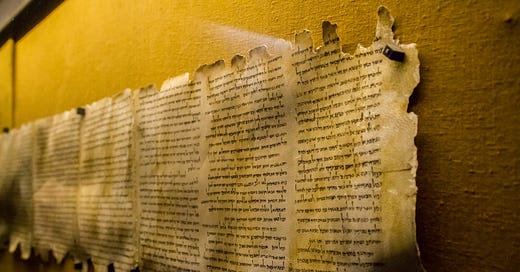How Israel Forged One of the World’s Most Vast and Vital Archaeological Treasures
Or, as one journalist put it, how Israel became “almost certainly the most excavated region in the world.”
What seems like every week, archaeology makes for great news coming out of Israel.
Just a few days ago, while excavating the ancient city of Tel Erani, an Israeli team discovered a 5,500-year-old passageway made of monumental stone and mud bricks, indicating that urbanization in the area began centuries earlier than previously believed.1
Other recent headlines include:
Archaeologists baffled by ancient handprint discovered in Jerusalem2
Purple from Holy Temple objects traced to snail guts at 3,000-year-old Haifa factory3
Archaeologists finds link between Israel, Kingdom of Sheba4
Today, Israel boasts some 30,000 sites of antiquity, but the vast majority of them have never been excavated. That’s because serious archaeological research only began in the 15th century.
Plus, limited funding is available for archaeological research, and there aren’t many paid positions. Most archaeologists supplement their archaeological work with a second income, such as teaching or tour guiding.
Currently, the most ancient site in Israel, and one of the earliest outside of Africa, is Ubeidiya in the Jordan Rift Valley, estimated to be over one million years old. In 2020, archaeologists from the University of Haifa discovered the oldest-known tool used for grinding or scraping, dating back about 350,000 years, at its Tabun Cave.
Archaeology in Israel isn’t just limited to land, though. In 2012, the University of Haifa created Israel’s only underwater archaeology certification program, which excavates ancient shipwrecks and once-upon-a-time coastal civilizations.
There are also laws in Israel which require archaeological digs prior to new building or road development, to identify and avoid damage to undiscovered antiquities. In recent years, these so-called rescue digs have taken place at some 300 sites annually.5
In one infamous story, construction crews unearthed an ancient cemetery while building a luxury $60-million hotel in Jaffa, causing a feud between the mogul real estate developer, Aby Rosen, and Orthodox Jews who wanted his company to lay a five-meter cement slab over the grave site, parts of which are more than 2,000 years old and contain the bodies of Jewish sages, rabbis claimed.6
And in 2013, the Islamic Movement said it uncovered six mass graves in Jaffa’s Kazkhana Cemetery, sparking rival theories over whether the dead are Arabs killed during Israel’s War of Independence, or skeletons of Egyptian soldiers who fought with the British in World War I.7
Hence why archaeology in Israel is as much about politics as it is about history.



